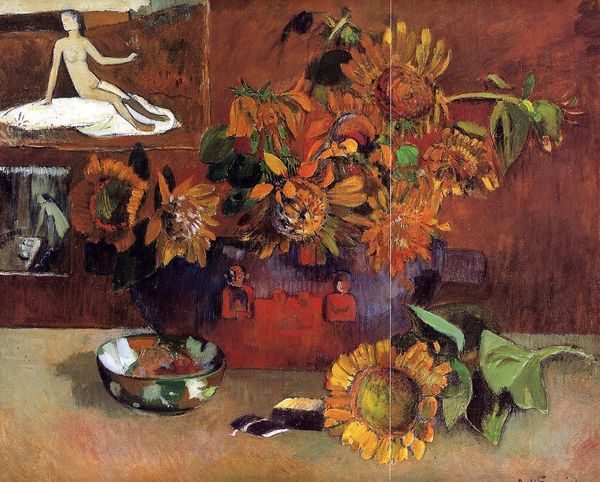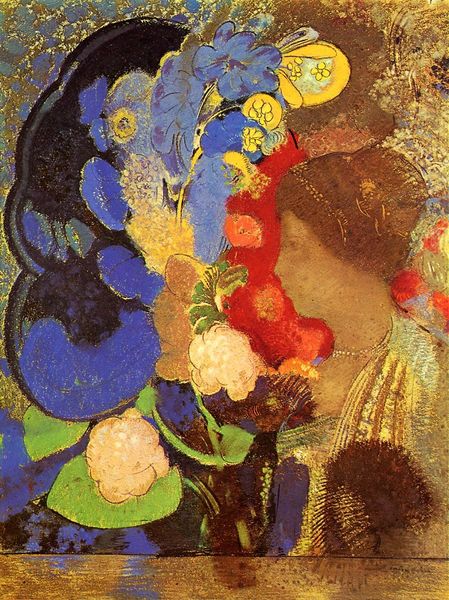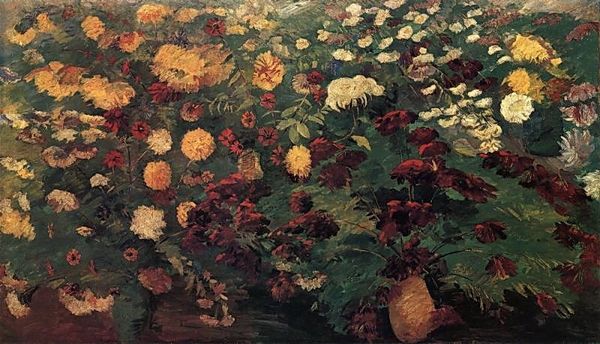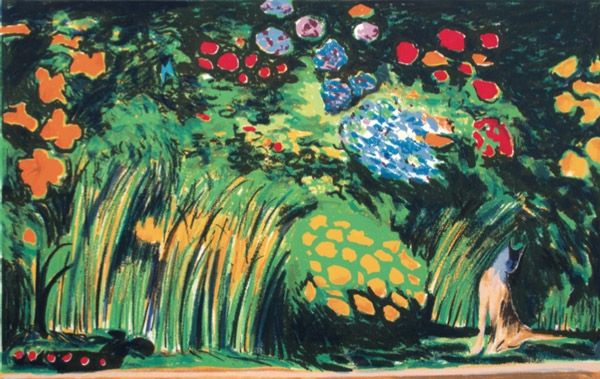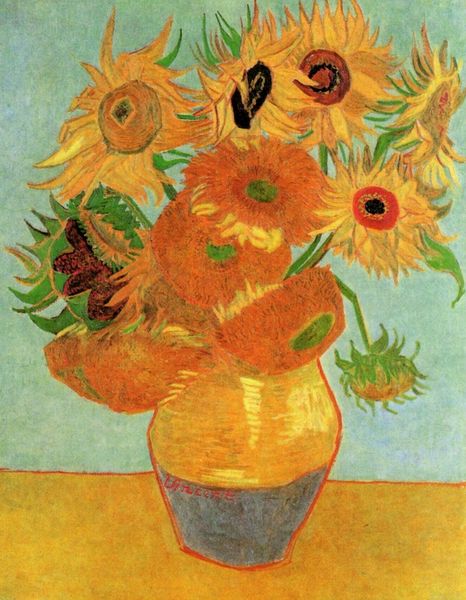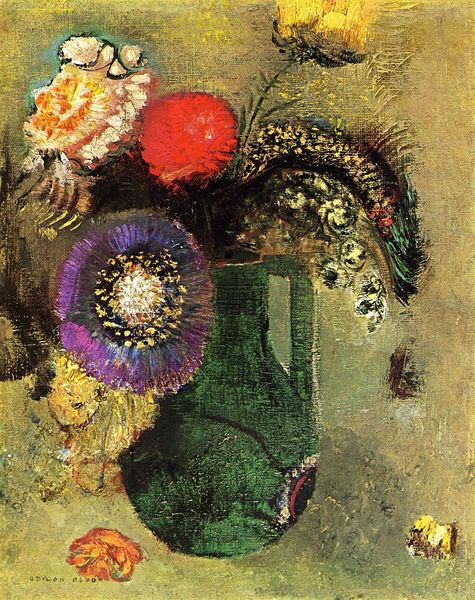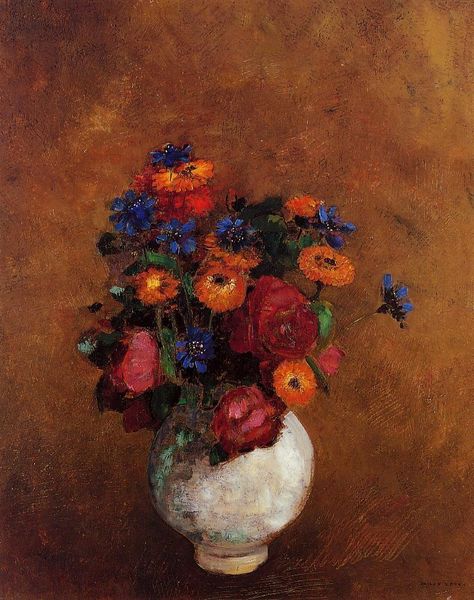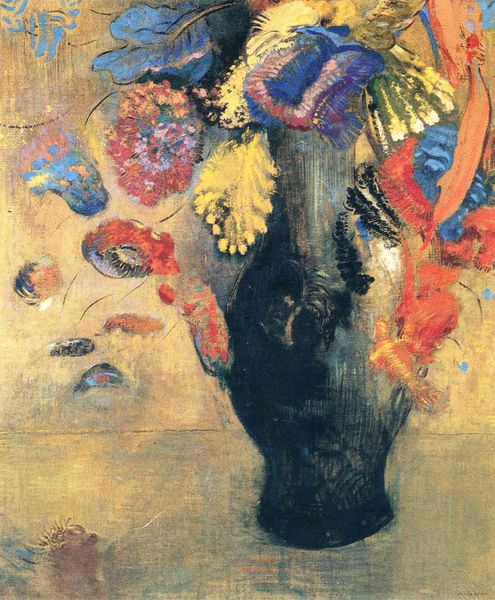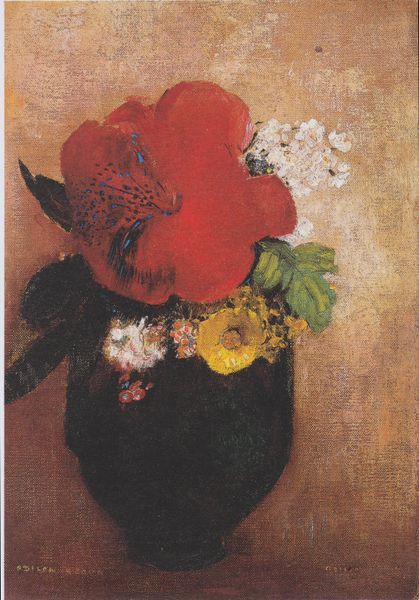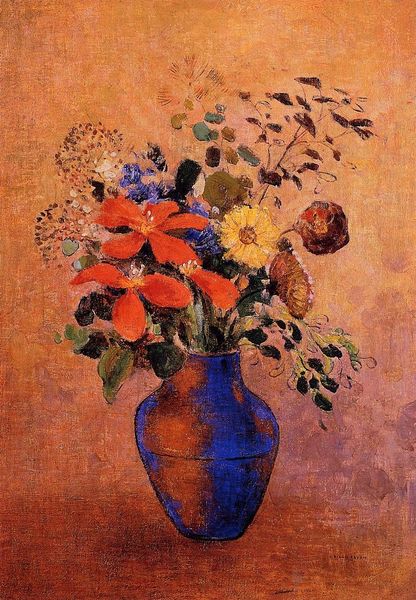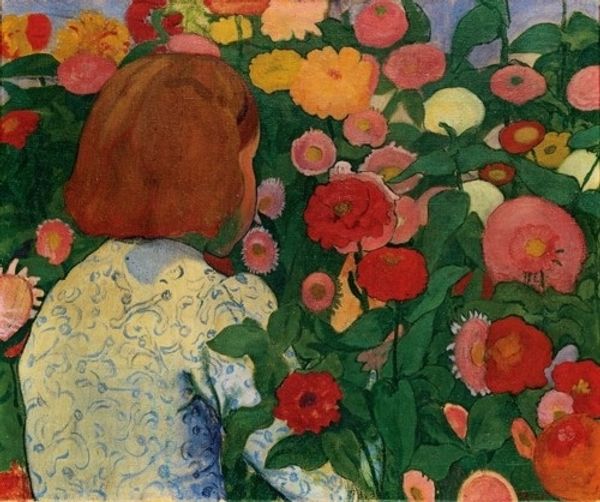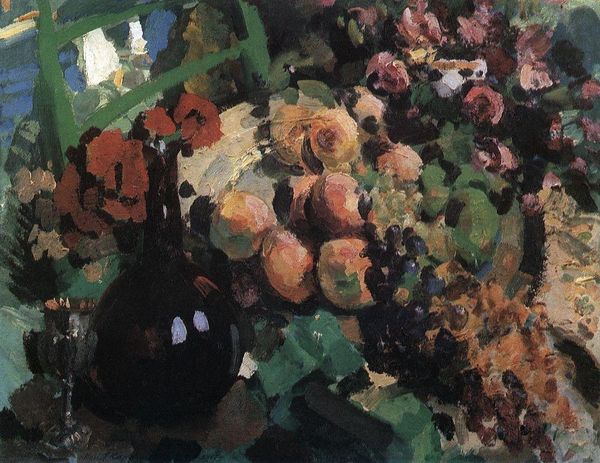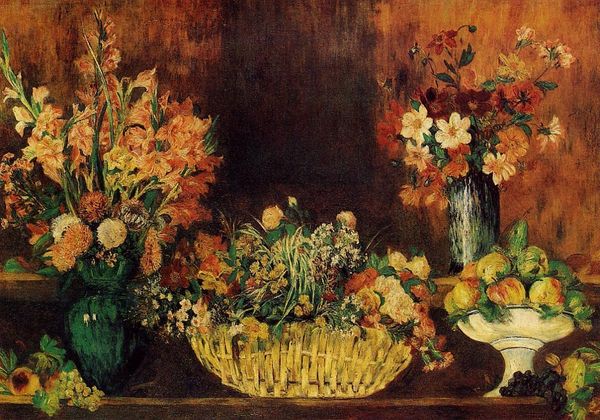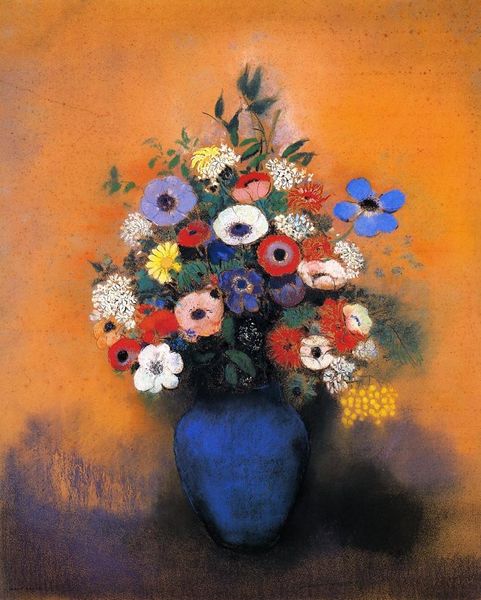
painting, oil-paint, impasto
#
painting
#
oil-paint
#
oil painting
#
impasto
#
fruit
#
genre-painting
#
post-impressionism
Dimensions: 36.5 x 52.5 cm
Copyright: Public domain
Editor: This is Paul Gauguin's "Still Life Fete Gloanec," painted in 1888 using oil on canvas. There's something striking about the intensity of color. It's not quite realistic, but the vibrancy is so appealing. What stands out to you? Curator: Indeed. The chromatic intensity arrests the gaze immediately. Observe the dominance of the red ground. Gauguin’s use of color here is not descriptive but constructive. Note how he builds form through the juxtaposition of color planes rather than relying on chiaroscuro modeling. Do you see how this relates to the formal reduction characteristic of Post-Impressionism? Editor: I do. So, instead of trying to perfectly replicate what he saw, he used colour to express something more. The fruit looks almost symbolic. Is it more about feeling than accuracy? Curator: Precisely. Consider also the application of paint. The impasto, especially visible in the treatment of the orange object—possibly a squash—gives the surface a tactile quality, almost an independent life. Is there a tension, do you think, between the two-dimensionality Gauguin seems to court and the almost sculptural paint application? Editor: Absolutely! There's flatness but also so much texture and movement, I see it clearly now. I hadn't noticed how active the surface is! Curator: That tension, that play between flatness and depth, representation and abstraction, is central to understanding Gauguin's project. It marks his movement beyond impressionistic naturalism. It seems, then, by looking more carefully at colour and paint texture, that new aspects reveal themselves in this piece.
Comments
No comments
Be the first to comment and join the conversation on the ultimate creative platform.
